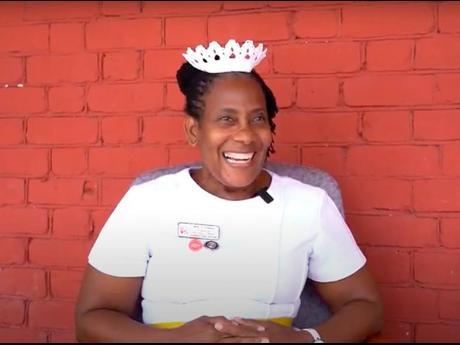Heroes on the front line
Thousands of healthcare workers across the island’s four regional health authorities are working daily to help treat, trace, and detect cases of the deadly coronavirus across the island.
Since Jamaica recorded the first case of the virus that causes the COVID-19 respiratory disease on March 10, the number has grown to 125, with five deaths and at least 21 patients recovering so far.
Among the quiet heroes are Samantha Nicholson-Spence, head of the department of medicine, and Charmaine O’Reilly, in-service education officer, both at the Kingston Public Hospital (KPH).
‘It’s about the whole population’
Nicholson-Spence told The Gleaner that she developed a genuine interest in medicine after being introduced to biology in high school. She then pursued a medical degree at The University of the West Indies (UWI) and furthered her studies at the University of Miami in the “limitless” field of internal medicine.
Now back at the KPH, where she did her internship after leaving medical school at The UWI, playing her part in the crisis means that Nicholson-Spence now works longer hours and has to take calls after hospital hours, but her family has been understanding.
“My husband asks, ‘Are you seeing COVID patients?’, ‘What’s the risk involved [to him]?’ and so on,” she shared.
Nicholson-Spence is worried about the potential loss of life that may occur should there be a wide spread of the virus in Jamaica.
“Even if you don’t die, the effect it will have on homes and families is significant, and it can place a burden on healthcare ... . You may have persons who don’t necessarily have COVID, but maybe they have cancer, but their access to care is limited because there are a million COVID patients at facilities,” said the doctor, who has been employed at KPH since 2012.
She is urging Jamaicans to adhere to the measures being introduced by the Government to contain the spread of the virus.
“It’s not just about you; it’s about the whole population. You may get it and you’re fine, but the other five or six people in your household may die because of your carelessness, and social distancing costs nothing,” Nicholson-Spence noted.
Through it all, she is maintaining a positive outlook, noting that there is life after COVID-19.
Training key to fighting pandemic
Charmaine O’Reilly harboured dreams of becoming a nurse but chartered a path in finance after leaving high school in 1981.
In 1999, when she was 35 years old, she commenced diploma studies at the Kingston School of Nursing then headed to Northern Caribbean University in 2004 for a degree in nursing.
In-service education is one of the cornerstones in the professional development of healthcare personnel ,and O’Reilly’s job requires her to reach all hospital staff.
“I have created a video that includes information about COVID-19. It highlights how to maintain good hygiene, how to put on personal protective equipment and how to remove them. The training that we do also speaks to general well-being,” the education officer said.
O’Reilly has one concern about the current pandemic: “I don’t think persons are understanding the nature of the disease, and they’re not taking the necessary steps to decrease the spread of this disease.”
Her family has never outwardly expressed concern about her working amid the crisis, but she has their full support.
“I get taken to work, I get picked up at the right time, and I get assistance with my teaching,” she said, adding, “My husband comes by and sets up the equipment I use for my presentations.”

